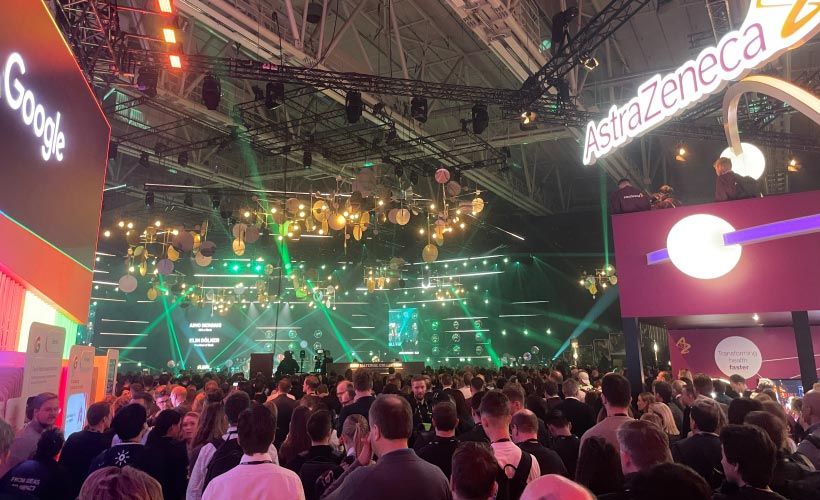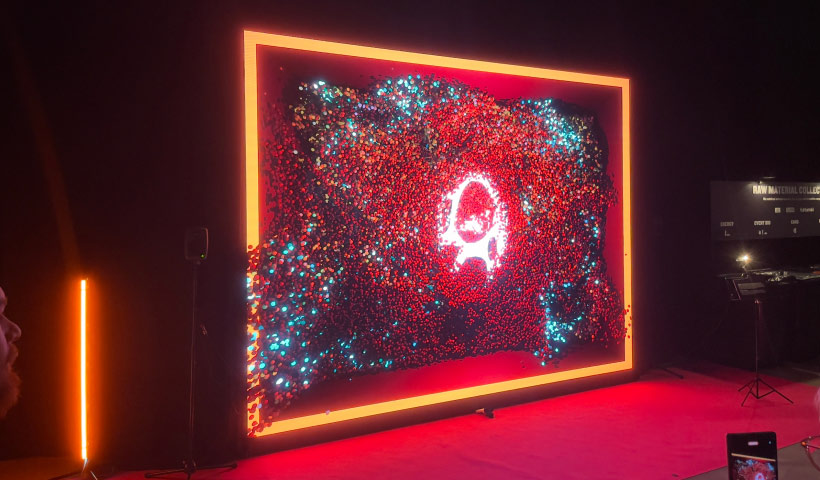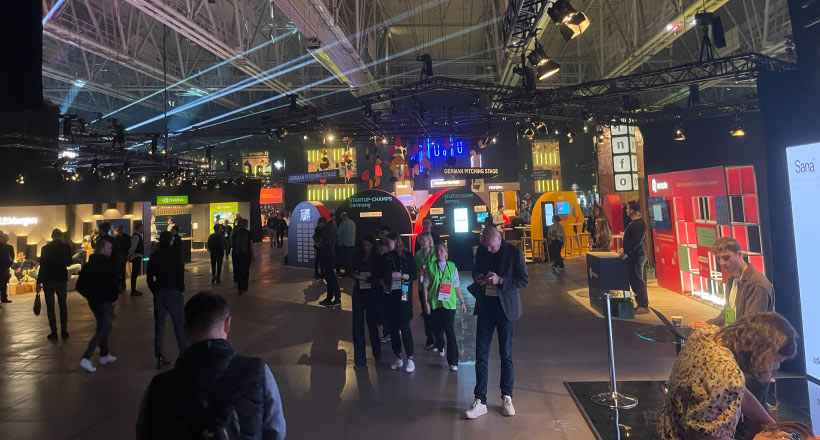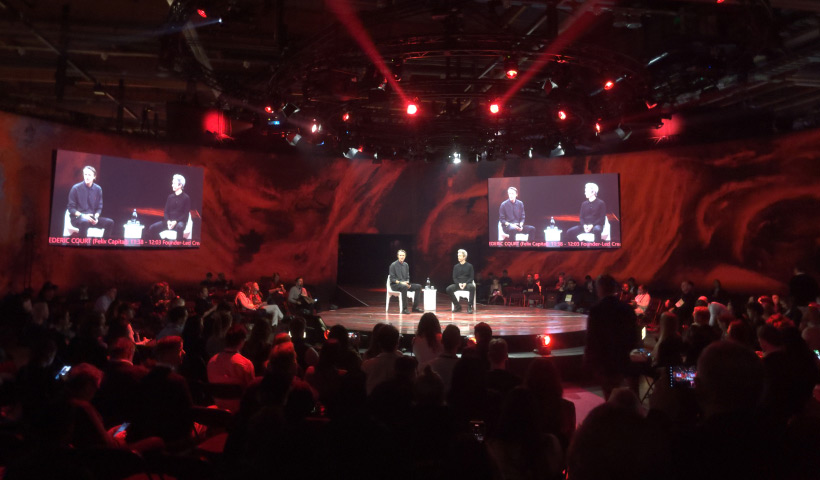“Great stories start with a chat, not a prompt.” There couldn’t be a better summary for Slush 2024. This year the most founder-focused even on Earth gathered 13,000 attendees from across Europe to discuss the state of European IT ecosystem, the strategic need for transformation, and, of course, the future prospects of innovative technology and its impact on the world.
Light IT Global couldn’t miss the opportunity to become a part of the action and came to Helsinki to witness Slush 2024 firsthand. This article contains several most interesting observations we picked up during the event and we’re happy to share them with you!
The Future of AI Is Ambiguous
Just like in all other IT events of 2024, during Slush, the topic of Artificial Intelligence was one of the main discussion points among founders, investors, and tech experts. Several panels focused on AI’s influence on modern business practices, its potential for further automation and overall technological advancement as well as the challenges companies face during the development of AI-powered products.
Without a doubt, the most thought-provoking speech was delivered by Benedict Evans, an independent analyst who offered a very interesting take on the future of AI.

Benedict emphasized that even though we can safely say that generative AI is the next big platform shift, the element of uncertainty in this area is huge. Today, no one really knows whether generative AI and LLMs will continue to scale the way they do now, or they will scale down eventually (not really clear when exactly). But despite that, for many companies and investors, the fear of missing out is stronger than the fear of potential losses related to possible scale-down.
Another curious point mentioned by Benedict Evans is that many people don’t have a use case for generative AI right now. Artificial Intelligence is actively used in a few areas like coding, marketing, and customer service. Yet, in many other domains companies literally force the user to figure out what to do with the technology without offering a valid use case themselves.
This point was mirrored by the CEO of ElevenLabs, Mati Staniszewski, who noted that, as a startupper, you cannot predict all the use cases for the product it is important to interact with the audience to deliver a solution the audience will love.

Matthieu Rouif also highlighted the importance of user feedback in AI app development. In his opinion, paying users’ feedback is the most valuable for any AI-driven company and founders shouldn’t be afraid to monetize the app from day one to receive said feedback and continue delivering the best product they can.
What really stood out to us during Slush 2024 is the boldness modern entrepreneurs hav to admit that Artificial Intelligence is often a game of “hit or miss” and noone really can tell whether their bets will be winning in the end.
We can’t model the evolution of transformative technology like that. And it’s exactly what makes modern AI so exciting and captivating.
European Legal Framework Requires Immediate Action
There’s no denying that the tech potential of Europe is immense and that European tech talents offer some of the most innovative ideas that bring the world forward. Still, the majority of startups in the EU can’t even implement their vision due to a myriad of legal obstacles on their way.
This problem, as well as the current state of the European startup ecosystem, was another major topic at Slush 2024. Andreas Klinger, co-Initiator of EU INC and Aura Salla, European Parliament representative shared their view on the current state of affairs in IT regulation and the issues that hinder the progress of European tech community.

As they mentioned, less than 18% of all early-stage investments in Europe are pan-European. Most investors only invest within their country, and if a startup doesn’t have many investors in their area, they are almost certainly doomed to fail. So, to some extent, currently there is no European startup ecosystem, as we are not competing globally as Europe, we’re competing as national silos. The easiest way to fix this issue is to establish a standard legal entity that founders can use, investors and lawyers will know, and everybody will rely on standard processes.
While there was a try to make such a legal entity happen back in 2004, similar initiatives are blocked by the European Council as tech enthusiasts and politicians can’t understand each other. Most of the people who are regulating digital platforms and initiatives have never used them. That’s why European tech visionaries and startuppers have to unite and explain to politicians what innovation really is.
Currently, young innovators and entrepreneurs are certain they have to move to the US to give their idea the slightest chance at working, so Europe is at risk of not only losing a whole generation of young trailblazers but also the brand of tech Europe. We need to de-regulate the digital landscape today or the European market will be even more fragmented.

Most common problems European startups face:
- Not enough risk capital in the EU
- Overregulated startup market
- Only 4% of Europeans are living and working in a country they’re not originally from
On the brighter side, the European Commission currently agrees that the unsatisfactory state of the European startup ecosystem is an important topic. So, the idea of simplifying cooperation between startups, investors, and entities from different countries through a standardized legal body has the future. Yet, it’s still important to remember that necessary legal changes might take a long time to actually come to life.
Humanoid Robotics Is on Its Way to Change the Way We Perceive Labor
It’s both fun and a little intimidating to think that robots that look like humans and act like humans are a reality. Bernt Øivind Børnich, Founder and CEO of 1X, presented an amazing take on a life-changing potential robotics has not only for manufacturing conglomerates and big tech companies but for an ordinary user and a society as a whole.
In Bernt’s opinion, some of the most prominent drawbacks of many robotics startups are the lack of cost-effectiveness and the tendency to overengineer. Yet those can be eliminated by the application of the first principle approach, which ensures safety, cost-effectiveness, and real-life application for robotics innovations.

Of course, there are a lot of things in terms of safety that still have to be considered in modern robotics. E.g., how to ensure that the robot doesn’t do anything that can be harmful to humans and the environment, how to guarantee the highest level of cybersecurity and data protection, etc. But, as Bernt Øivind Børnich mentioned, those issues aren’t new. Many industries face them while developing all kinds of software, and there are well-established ways of resolving them.
On the other hand, the potential for adoption of robotics is undeniable. A smart robot is a very sticky product because once a person doesn’t have to do something in their home anymore, it’s hard to give up that comfort.
The goal of 1X (and many other robotics companies as well) is to create an abundance of labor by means of safe, intelligent humanoids. And if the momentum in modern robotics continues, there’s a chance that in the near future, people will not believe how cheap and effective physical labor performed by robots is. Eventually, there will be a point when humans don’t have to be involved in physical labor. And that point may be closer than we think today. We’re not going to be constrained by labor, and the same efficiency we have in the digital world will eventually be achieved in the physical world.
To Sum It Up
Slush 2024 was a paradise for everyone truly interested in technology and innovation. Dozens of inspirational panels, hundreds of stimulating discussions, and thousands of lovely people whose goal is to make a difference in this world.
Unfortunately, we couldn’t pack every bit of insight from the event within one article, but we hope this short review gave you a better understanding of where the European IT community is going and how many thrilling opportunities the future holds.
Stay tuned for more updates from Light IT Global, and feel free to get in touch if all that stops you from bringing your own life-changing idea to life is a lack of tech expertise. We are here to help!




